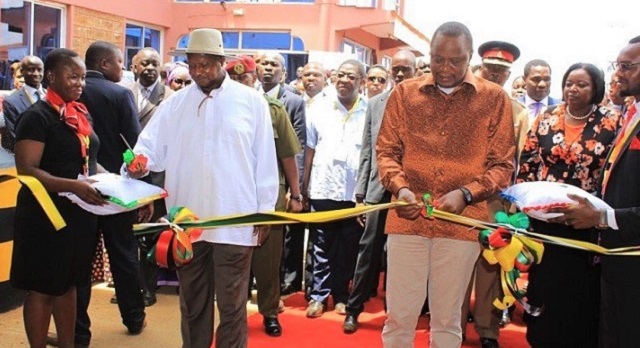
Trade Ministry says the Ease of Doing business does not reflect true picture on the ground
Kampala, Uganda | ISAAC KHISA | Uganda slide its ranking on the World Bank’s ‘ease of doing business’ report for the second consecutive year, dropping five places to the 127 position owed to increase in trade licensing fees and introduction of property transfer related charges.
The East African nation ranked 122 last year and 115 in 2016 – the best ever ranking in the last five years, out of 190 economies.
This comes as the Private Sector Foundation Uganda (PSFU) accused the government of failing to implement proposals they present during budgeting process including improving business environment to accelerate job creation and improve in people’s income.
“Uganda made transferring property more difficult by introducing a requirement for property purchasers to obtain an income tax certificate before registration, resulting in delays at the Uganda Revenue Authority and the Ministry of Finance,” said the latest report released in Washington D.C on Oct. 31.
The report also notes that the government introduced changes that added time to the process of obtaining a business license, slowing business start-up.
At the same time, the government made it easier by digitizing records at the title registry, increasing efficiency at the assessor’s office and making it possible for more banks to accept the stamp duty payment.
It also simplified registration for a tax identification number and for value added tax by introducing an online system, reduced the time required for companies to prepare, file and pay value added tax through improved efficiency of taxpayer services and banks as well as time required for trading across borders through expanded operating hours at the port of Mombasa and improvements in customs processes and in border cooperation.
The 2019 release is the 16th edition of a series of the global bank’s annual reports that examines the regulations and conditions that enhance business conduciveness and those that constrain it around the world.
The World Bank Doing Business survey focuses on several aspects that facilitate business including; the ease of starting a business, obtaining construction permits, access to electricity, registering property, access to credit, protecting minority investors, paying taxes, trading across borders, enforcing contracts, and resolving insolvency.
A high ease of doing business ranking means the regulatory environment is more conducive to the starting and operation of a local firm.
Zackey Kalega, a commercial officer in the Ministry of Trade, however, told The Independent that the World Bank’s justifications for the slide in the ranking of Uganda in the ease of doing business does not hold water.
“In fact, we have reduced trading licenses fees over the years,” he said, adding that the global bank could be getting perceptions of the people with limited knowledge.
Kalega pegs his argument on the fact that in 2016 President Yoweri Museveni assented to the Trade Licensing Amendment Act 2015 which among others reduced the licensing rates by 25% countrywide. He said the business environment has been improving over the years.
World Bank Group President Jim Yong Kim said governments have the enormous task of fostering an environment where entrepreneurs and small and medium enterprises can thrive.
“Sound and efficient business regulations are critical for entrepreneurship and a thriving private sector. Without them, we have no chance to end extreme poverty and boost shared prosperity around the world,” he said.
Compared with the rest of the east African states, Uganda has been sliding downwards while Kenya and Rwanda have been rising up the rankings over the last three years. Kenya has gone up six places during the past year to clinch the 66th position while Rwanda has moved 12 places to the 29th position, beating out such countries as Holland, Switzerland, Japan and China. Tanzania fell by 15 places to 144.
Globally, China and India – two economies with the largest populations – are among top 10 improvers this year.
Kenya, Rwanda, Afghanistan, Djibouti, Azerbaijan, Togo, Côte d’Ivoire and Turkey rounded out the top 10 most improved list.
Also, Djibouti and India are the only economies to make the 10 top most improved list for the second consecutive year. World Bank says various reforms had been carried out to warrant the changes in the ranked positions.
The top five overall are: New Zealand, Singapore, Denmark, Hong Kong and Korea. The U.S. ranks 8th, down from 6th last year.
Since its inception, Doing Business has recorded business reforms in 186 of the 190 economies it now monitors, with Rwanda having implemented the highest number of business reforms over the past 15 years, with a total of 52 reforms.
Ranking of EAC Countries in the World Bank’s ease of doing business report

 The Independent Uganda: You get the Truth we Pay the Price
The Independent Uganda: You get the Truth we Pay the Price



